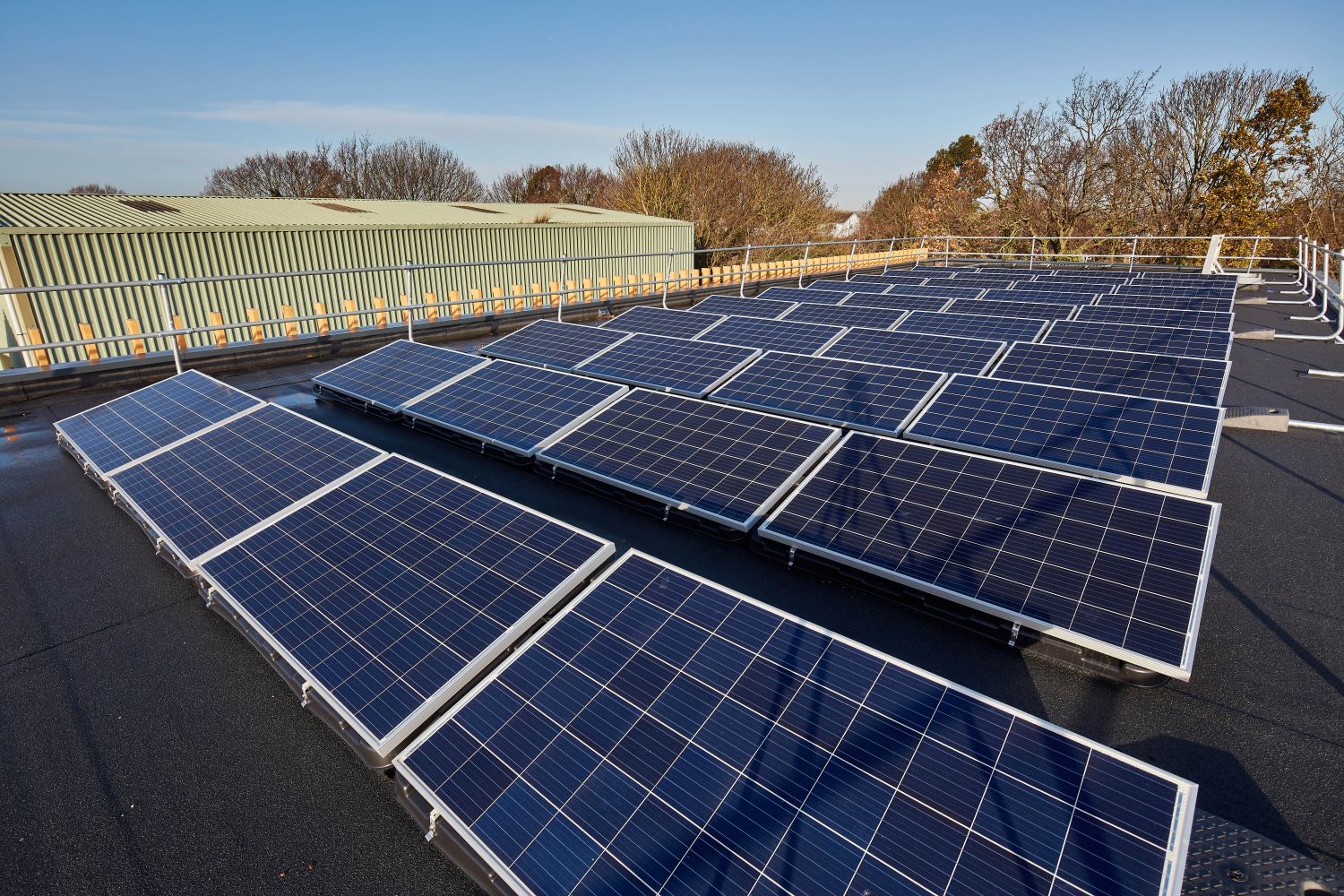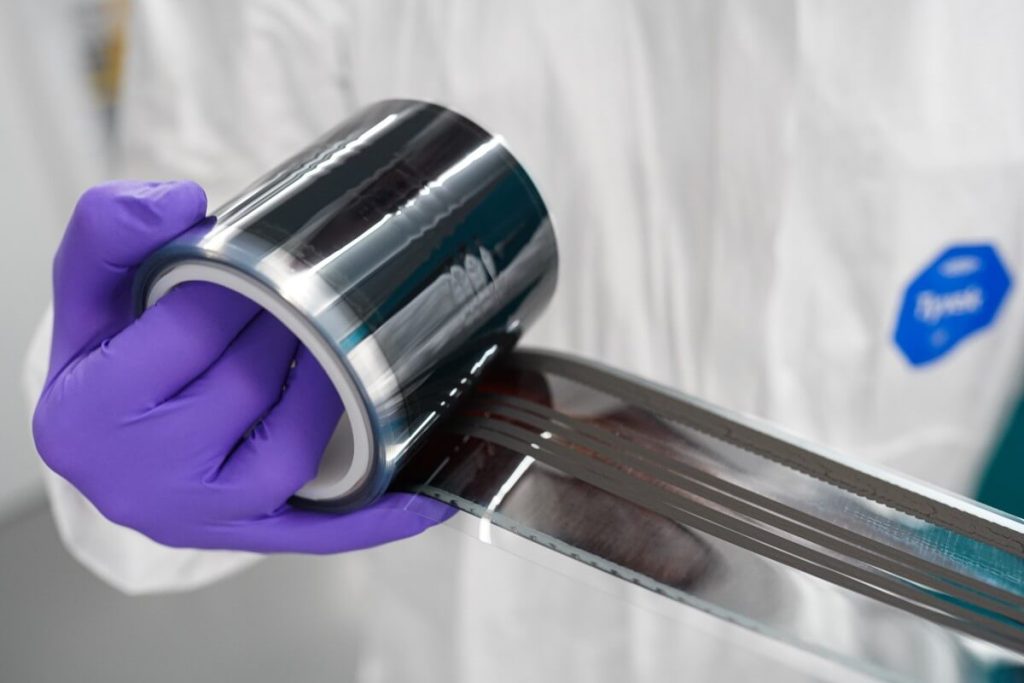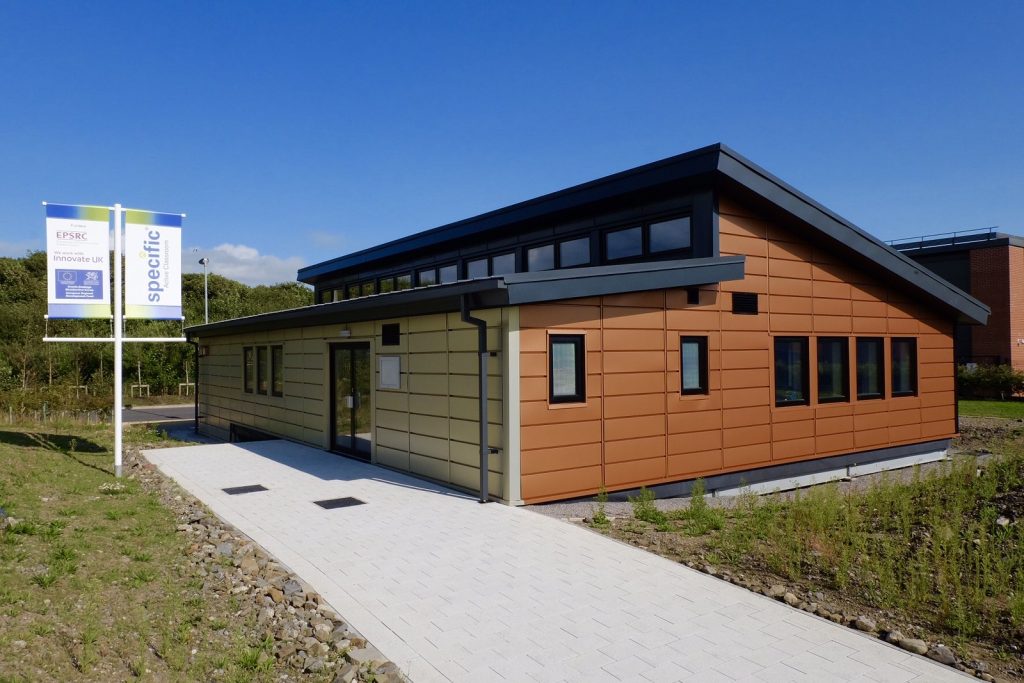
circular economy
Adopting a circular economy is the only way to reach climate change targets sustainably.
The next generation of technologies presents a unique opportunity to design for ease of re-use and re-manufacture from the outset. With the rapid rise in renewable technologies, we must avoid solving one environmental problem and creating another.
Here at SPECIFIC, circular economy is a major focus across all of our research themes but particularly printed photovoltaics and electrical energy storage.
Devices like perovskite solar cells and batteries are highly engineered. Alongside work to improve the manufacture and performance of these technologies, we are researching low-cost methods for removing and re-using materials from the devices at the end of their useful lives, so that they can be used to make new devices and have their value realised.
Lifecycle analysis is a key activity, in order to fully understand the environmental costs of producing and recycling technologies and materials.
We are also exploring the removal and reuse of components from buildings using the Active Classroom, which was designed to be disassembled.
Projects and Collaborators
The TReFCo (Thermal Recovery of Functional Coatings) project is investigating thermal recycling methods for functional coatings. It is a collaboration led by Swansea University, partnered with University of Birmingham, Keeling and Walker, Precision Varionic, Deregallera, Tata Steel, adphos Group, Elemental Inks & Chemicals, WRAP and Plug Life Consulting.
APOLLO is a Horizon Europe project to improve recycling of solar photovoltaics. It is led by the Fraunhofer-Gesellschaft zur Förderung der angewandten Forschung e.V. in Munich, Germany, with eighteen partners from across Europe.
Professor Matthew Davies holds the UNESCO Chair in Sustainable Energy Technologies. The Chair is dedicated to the development of low-cost, efficient and sustainable solar technologies. It focusses on their manufacture and use within a circular economy in Africa and low and middle income economies, in collaboration with colleagues at Swansea University and partners across these regions.
Contacts
- Professor Matthew Davies – Applied Photochemistry and the Circular Economy Lead
- Dr Jenny Baker – Electrical Energy Storage Research Lead
- Dr Joanna Clarke – Building Design Manager

